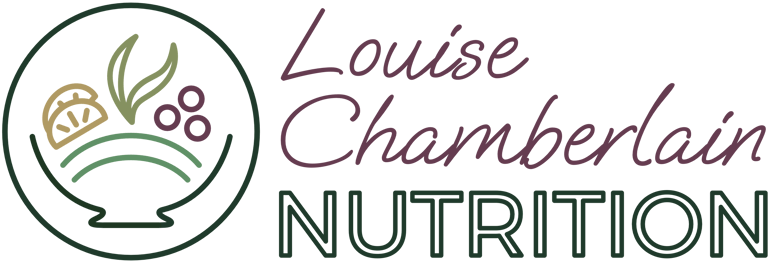Why Is a Balanced Diet So Important?
Your body relies on a wide range of nutrients to carry out its daily functions. No single food or food group can provide all of them. Here’s what happens when you get the right balance:
Fruits and Vegetables
Packed with vitamins, minerals, fibre, and antioxidants, they help reduce inflammation, support immunity, and protect against chronic disease.
Starchy Carbohydrates (especially whole grains)
Provide glucose — the brain and body’s primary fuel. They’re also a source of B vitamins and fibre.
Protein
Essential for muscle repair, immune function, and the production of enzymes and hormones.
Dairy or Fortified Alternatives
Provide calcium, iodine, and vitamin D — all vital for strong bones and teeth.
Healthy Fats
Support brain function, hormone health, and absorption of fat-soluble vitamins like A, D, E, and K.
When all these are included — in balanced amounts — you support your body across all systems: metabolism, mood, immunity, sleep, digestion, and more.
What Is a Healthy Diet?
A healthy diet is generally defined as one that focuses on high-quality, nutrient-rich foods. This might include:
Plenty of fruits and vegetables
Whole grains
Lean proteins like fish, legumes, eggs, and poultry
Healthy fats from nuts, seeds, and olive oil
These are the foods most widely recognised for supporting health. They’re rich in vitamins, minerals, antioxidants, fibre, and healthy fats — and they help reduce the risk of chronic conditions like heart disease, type 2 diabetes, and certain cancers.
But here’s the catch: even a diet full of healthy foods can be unbalanced if it doesn’t include the right proportions of all the key food groups.
A balanced diet, in the nutritional sense, is one that includes the correct proportions of the major food groups to give your body everything it needs to function optimally. That means not just eating “healthy” foods, but eating the right types of food, in the right ratios, on a consistent basis.
Each group plays a vital role. The key to a balanced diet is ensuring no food group is missing or underrepresented, and that your meals are structured to support the full spectrum of your body’s nutritional needs.
Can a Healthy Diet Be Unbalanced?
Yes — and it often is, especially when people over-focus on certain “healthy” foods or trends.
Example 1: Low-Carb Diets
Someone might eat mostly vegetables, lean proteins, and healthy fats, and avoid carbs entirely because of the fear of “sugar” or weight gain. While those choices may seem healthy, they may be lacking in complex carbohydrates — which are your body’s preferred energy source and essential for brain function, digestion, and sustained energy.
Example 2: Plant-Based but Protein-Light
A vegan or vegetarian diet packed with fruits, vegetables, and whole grains might still fall short on complete proteins, iron, or vitamin B12, especially if legumes, tofu, or fortified foods aren’t included regularly.
Example 3: Juice Cleanses or Raw Food Diets
Juices and raw foods can be nutrient-rich, but if that’s all you’re eating, you are likely to be missing vital fats, proteins, or sufficient calories — all of which are needed for hormone production, immunity, and muscle repair.
So even if everything on your plate is “healthy,” an unbalanced mix of food groups can lead to:
Nutrient deficiencies
Low energy
Poor immune function
Digestive issues
Hormonal imbalances
Muscle loss
In other words, healthiness doesn’t just come from food quality — it comes from food balance.
We all know that eating well is essential for good health. Terms like healthy diet and balanced diet are used often — sometimes interchangeably — in conversations about nutrition. But while both are important, they’re not quite the same thing. You might be surprised to learn that a healthy diet isn’t always a balanced diet — and that distinction can make a big difference to your long-term health.
In this post, we’ll explore what these terms really mean, how they differ, and why eating healthily isn’t always enough unless your diet is also balanced — meaning it contains the right amounts of the different food groups your body needs.
Common Pitfalls of Unbalanced Eating
Even with good intentions, people often fall into the trap of imbalance. Some common issues include:
Too much protein, too little fibre
Excess fruit, little to no fat or protein
Skipping carbs entirely or loading up on refined ones
Over-relying on supplements instead of varied food sources
Consuming “superfoods” but missing basic staples
Unbalanced eating can also lead to yo-yo dieting, fatigue, cravings, or poor concentration — symptoms that might be misattributed to stress or lifestyle when the real issue is your food mix.
Creating a Truly Balanced Plate
So, how can you turn your healthy diet into a balanced one? Try using this simple method at each meal:
The Plate Method
½ plate: Vegetables
¼ plate: Starchy carbs (brown rice, quinoa, sweet potato, wholemeal pasta)
¼ plate: Protein (beans, chicken, fish, eggs, tofu)
Plus: A portion of healthy fat (olive oil, avocado, nuts)
And: A serving of dairy or calcium-rich food
This approach ensures you’re getting a variety of nutrients in the right proportions, helping your body function at its best.
A healthy diet is a powerful tool for staying well — but it’s not complete without balance. You can eat the “right” foods but still miss key nutrients if you’re not including all the food groups in the right amounts. That’s why understanding and aiming for a balanced diet is so important.
Think of it this way:
A healthy diet focuses on what you eat
A balanced diet focuses on how much of each thing you eat — and whether it covers the full range your body needs
For long-term wellness, energy, and disease prevention, you need both. Quality + quantity. Health + balance.
If you’d like to improve your diet, get in touch and we can work together to make sure that your eating habits are supporting your long-term health.




